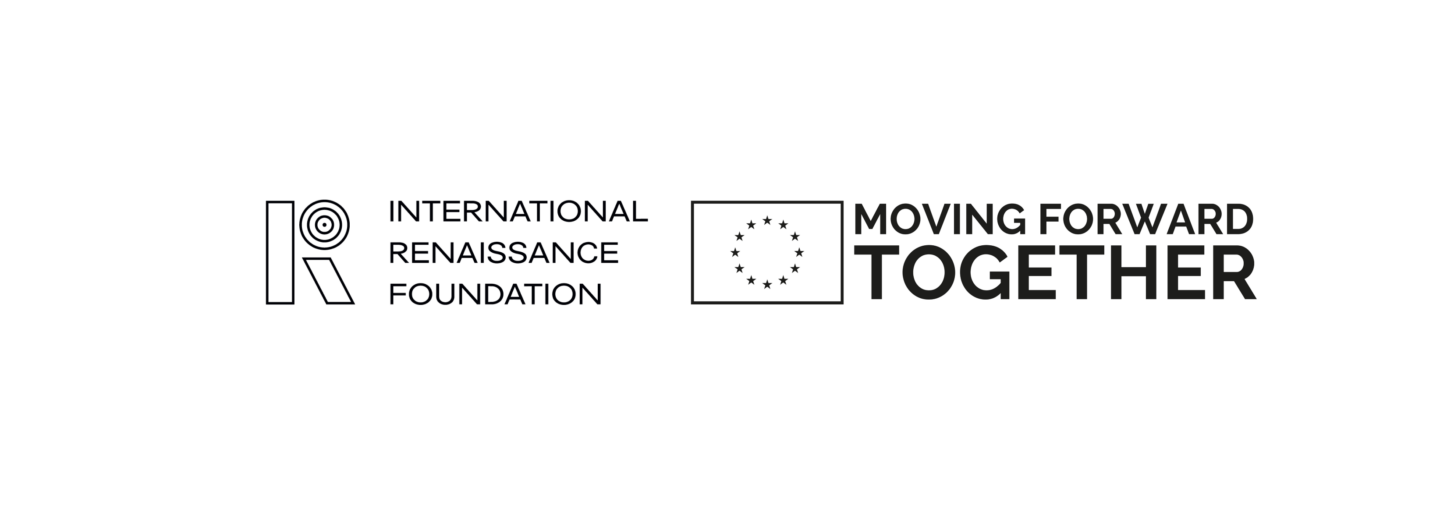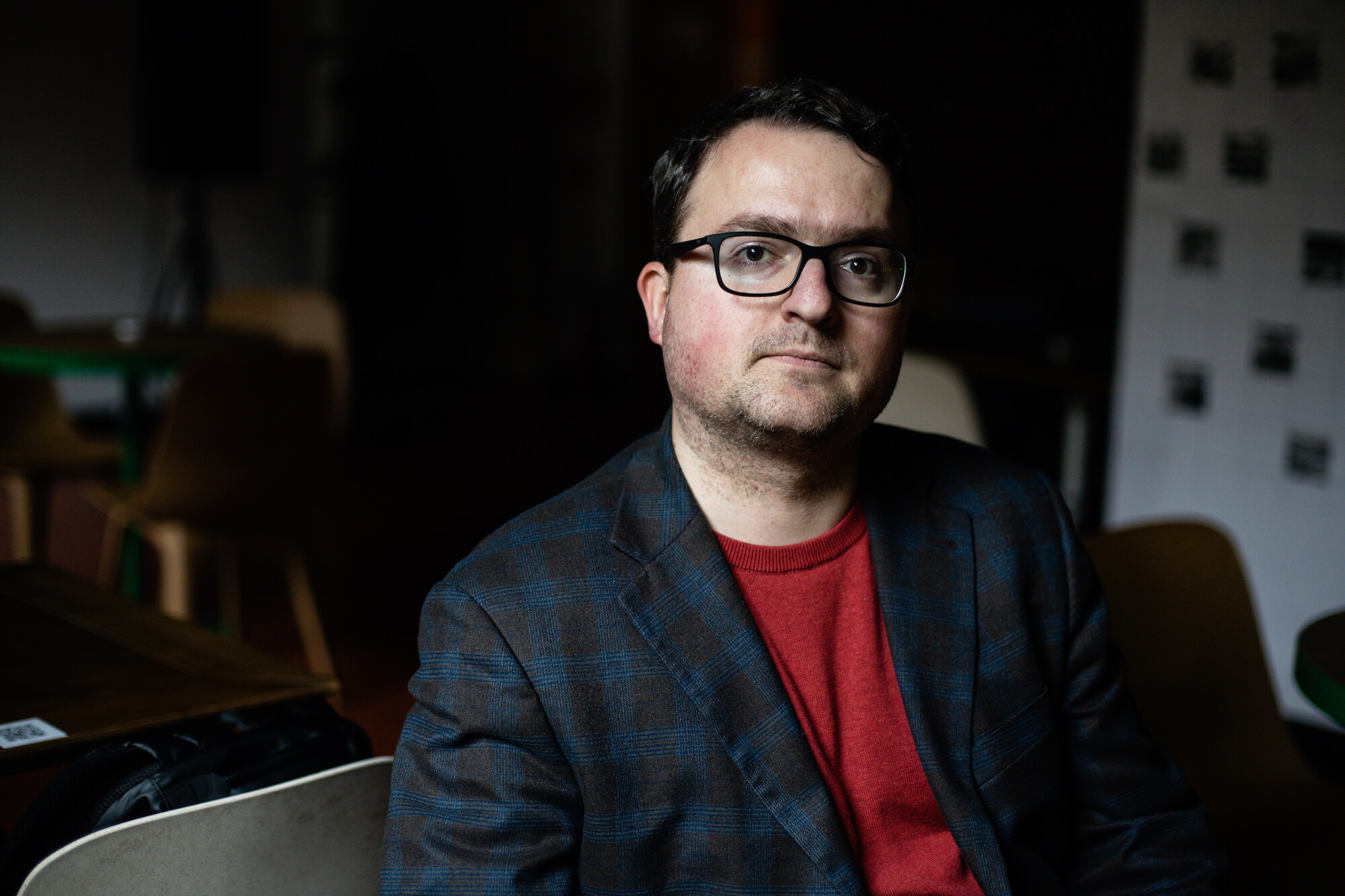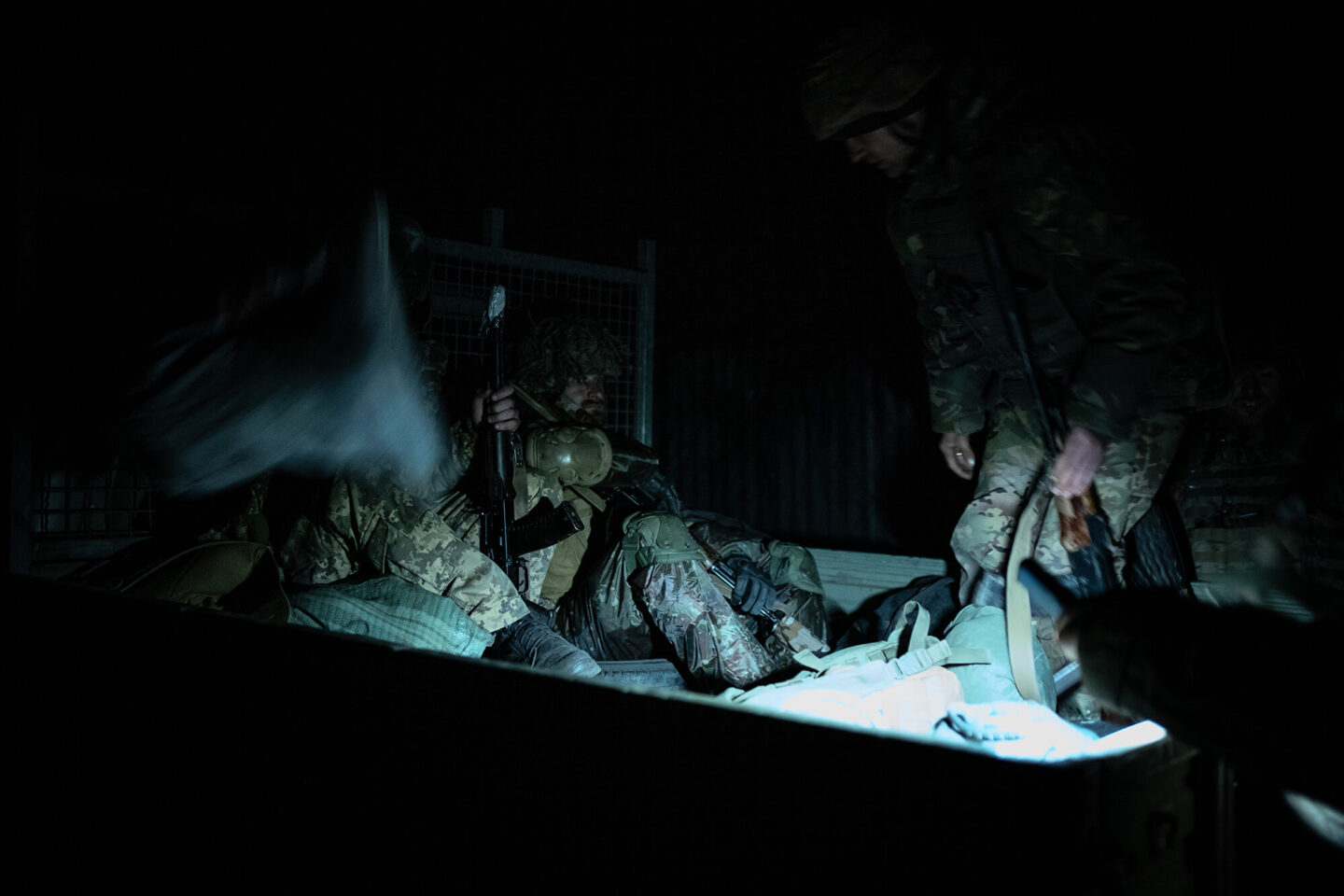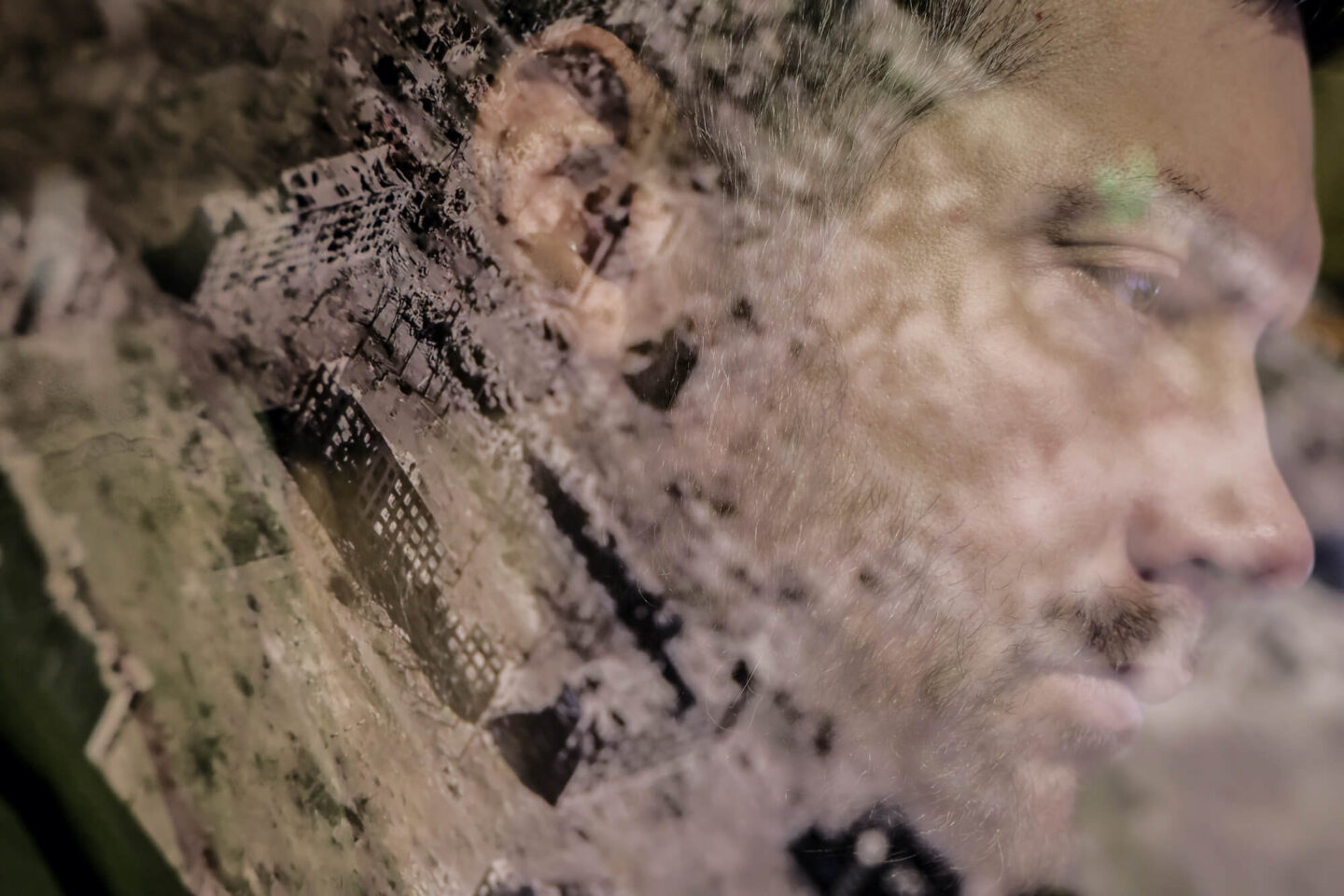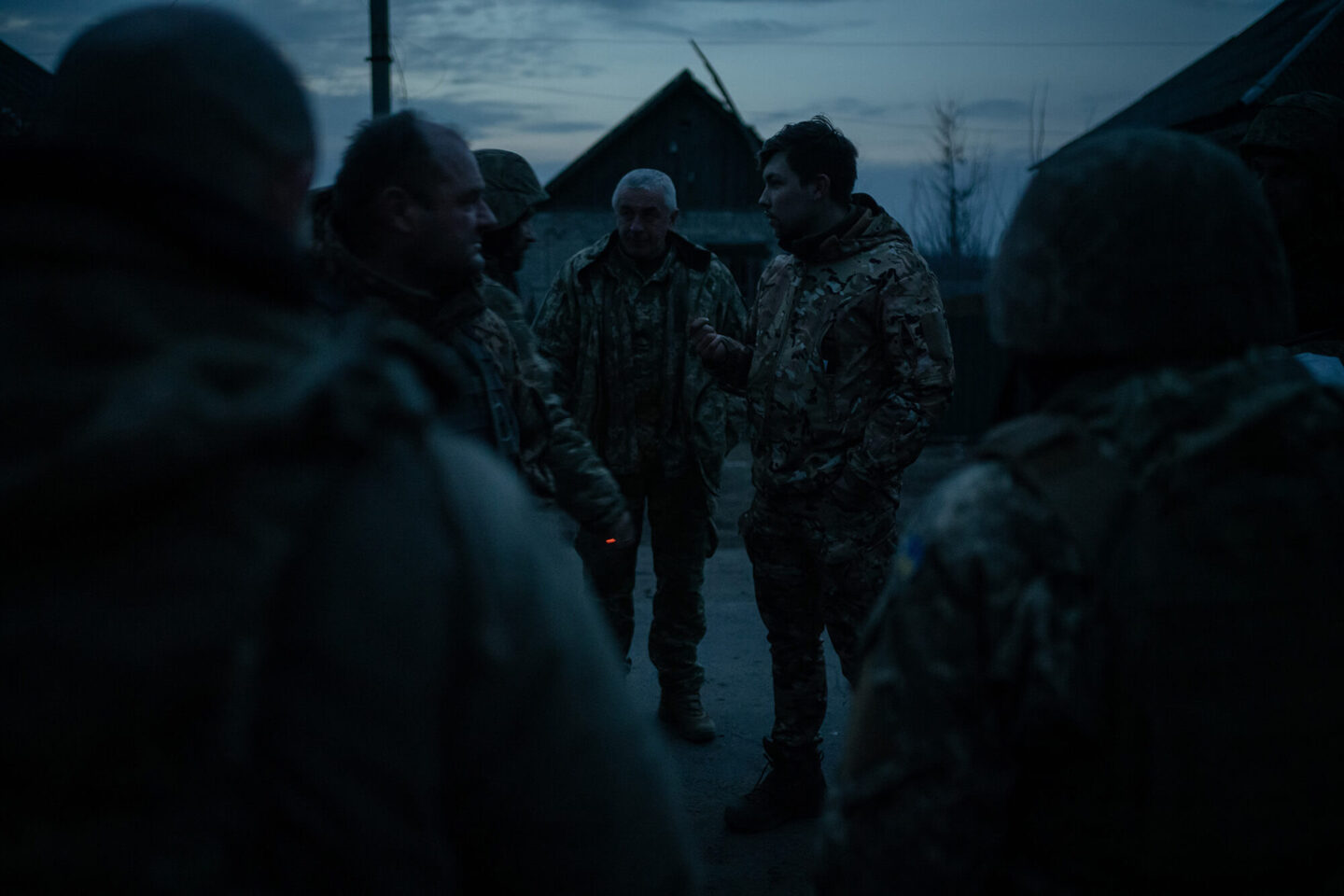The modern generation of lawyers in their 30s carries a unique perspective. As students, they witnessed the Orange Revolution. As young professionals, they lived through Euromaidan and the Revolution of Dignity. These experiences helped them grasp the power of law as an instrument for maintaining justice and righteousness.
Anton Korynevych is part of this very generation. As an Ambassador-at-Large for the Ministry of Foreign Affairs, he is now spearheading efforts to establish a special tribunal to investigate and prosecute Russia’s crime of aggression. When Korynevych says, “We will convict all of them,” referring to Russian occupiers, it’s not just rhetoric. So, it is quite logical that in this interview, we talk about how the Hague Tribunal will function and try to understand when Putin will sit in the prisoner’s dock.
Your journey as a lawyer has been long, holistic, and consistent. But I find it hard to imagine a child dreaming of becoming an international lawyer and, say, bringing Putin to justice. How did that happen to you? Let’s talk about your childhood dreams.
I always had a sense—or maybe an understanding—that Russia could attack us. It becomes quite obvious if you read history textbooks closely. By the time I was in high school, that realization really started to sink in, and that’s when I began thinking about my future and what I wanted to do.
You applied to law school in 2003—a time when being a law student was quite prestigious.
I was drawn to international law. But just studying law alone wasn’t enough for me—I was also interested in the political side of things.
However, there was a moment when I almost followed in my parents’ footsteps and became a doctor. I thought about it because I enjoyed biology in school, even though I wasn’t too fond of chemistry and physics. Being a doctor is such a noble profession, and I really respect that path. But I’m happy with where I’ve ended up. I’m actually the first lawyer in my family.
At 16, I knew what a notary, lawyer, or prosecutor did. But international law? How did you even discover this field?
At the time, for me, an international lawyer was someone who represented their country before other states and international institutions, writing treaties and conventions.
For a typical teenager, that doesn’t exactly sound like rock and roll.
Sounds boring? Let me put it differently. Even at that age, I felt strongly about working for Ukraine, for the benefit of the state. I wasn’t drawn to business, the private sector, or entrepreneurship.
Another important factor was my love for foreign languages. I’ve always enjoyed learning them and keeping up a working knowledge of languages.
And then, I was also intrigued by the idea of having a job that would allow me to travel the world.
Our generation was lucky to live through the Orange Revolution as undergrads. If I’m not mistaken, you were in your second year when the protests against election fraud broke out.
Yes, I remember that time very well. We were in a comparative administrative law class when the professor walked in and said that we should be out there, defending our choices and our future. No, this wasn’t forced upon us. We simply were told to do what we thought was right.
I went to the Maidan often. We would bring food and just be there. It felt like being part of something greater than ourselves. Even today, I still find myself using some of the slogans from the time of the Orange Revolution. One that sticks with me is “Because I’m consistent.”
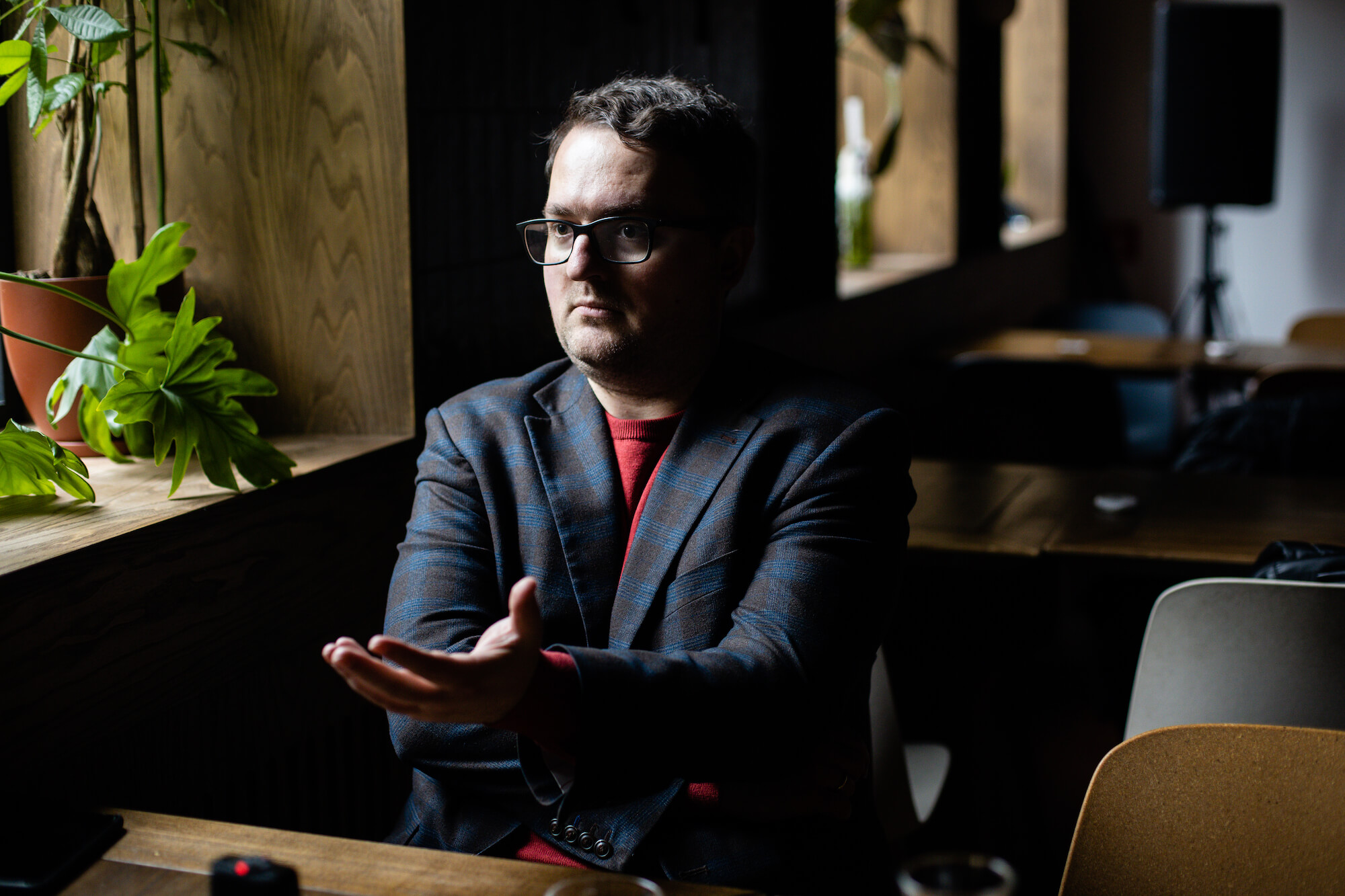
Do you think that experience shaped your future? Your understanding of the law, your career? You were still a student back then, but already on the path to becoming a lawyer.
I remember standing in front of the Supreme Court. What I liked and what left a lasting impression on me was how the proceedings unfolded and how the legal team defended the rule of law—the way they argued, the way they presented their case. It was really powerful.
That time also marked my first conversations about significant historical parallels and what it meant to be on the right side of history.
The Euromaidan happened when we were twenty-five or twenty-seven, already young professionals. How was that experience for you? Was it transformative?
The Euromaidan was another chapter in my life. By then, I had already defended my PhD thesis. My supervisor was Oleksandr Zadorozhnii, someone I deeply admire. He wasn’t just a mentor to me but to anyone studying international law in Kyiv.
I will never forget November 30 and December 1 [2013]. So many people gathered on the Maidan during those days. The entire winter was a whirlwind of intense emotions. At times, I wasn’t sure what would happen next, but deep down, I kept telling myself everything would turn out alright.
It was during those days that I clearly realized why democracy needs a robust system of justice and checks and balances to prevent the concentration of power, influence, and control in the hands of one person.
Before the Euromaidan, I remember a conversation with a political scientist who said that Ukraine should be proud of its civil peace—the harmony within society. It really moved me and stuck with me. But then came December, January, and February, when that civil peace was brutally gunned down in the streets.
Once again, it became clear: no matter your job or responsibilities, you cannot be part of this system. You must stand on the side of good, on the side of light.
This principle still guides me in my professional life. That’s why I don’t get too attached to titles or positions—they don’t matter. What truly matters is doing the work and achieving results that make a positive difference.
You’ve mentioned the word “justice” several times. I know that for lawyers, justice can mean something different than it does for the average person. Justice is also the triumph of law. When did justice first become a meaningful category for you?
The knowledge of foreign languages helps here—those where the word “justice” encompasses both triumph of law and fairness.
I never liked villains, even as a child. I watched all the Star Wars movies on VHS tapes, and I always rooted for the Jedi and the Rebels. That’s one of my clearest childhood memories. Luke Skywalker was my favorite.
I probably didn’t grasp all the nuances of the word “justice” back then, but I did understand it instinctively—as a concept, as a category.
As humans, we must strive to do good and bring justice through our actions. Perhaps lawyers have more tools at their disposal to achieve this.
Lawyers do have many tools to do good. But they also have tools that can be used for harm. Sometimes, when I look back on life in Ukraine before 2013-2014, I just find it hard to believe we were living in all of that.
I genuinely believe we are a deeply democratic people—a nation, a community. And when I say this, I don’t just mean ethnic Ukrainians. We aren’t content with having a Father the Tsar figure. Democracy and human rights matter to us. We hold dear the tradition of being able to choose our hetman, our leader.
Lawyers in Ukraine—how would you describe this community?
We have a remarkably large and professional network of highly skilled international lawyers in Ukraine. I’ve already mentioned my professor, Oleksandr Zadorozhnii. I also deeply admire Mykola Hnatovskyi, who, in my opinion, is the best international lawyer in Ukraine. He’s now serving as a judge at the European Court of Human Rights (ECHR).
We need to recognize that we are on par with foreign lawyers. We’re fully capable, and we know how to deliver results.
Of course, there are some challenges. For instance, where a hundred lawyers might be working abroad, we may only have five tackling the same tasks.
Other legal communities are equally strong—we have accomplished judges, attorneys, and prosecutors. Lawyers in Ukraine perceive reality through the lens of their work, profession, and specialization, and they’re laying the groundwork for positive change.
I believe I chose the right career.
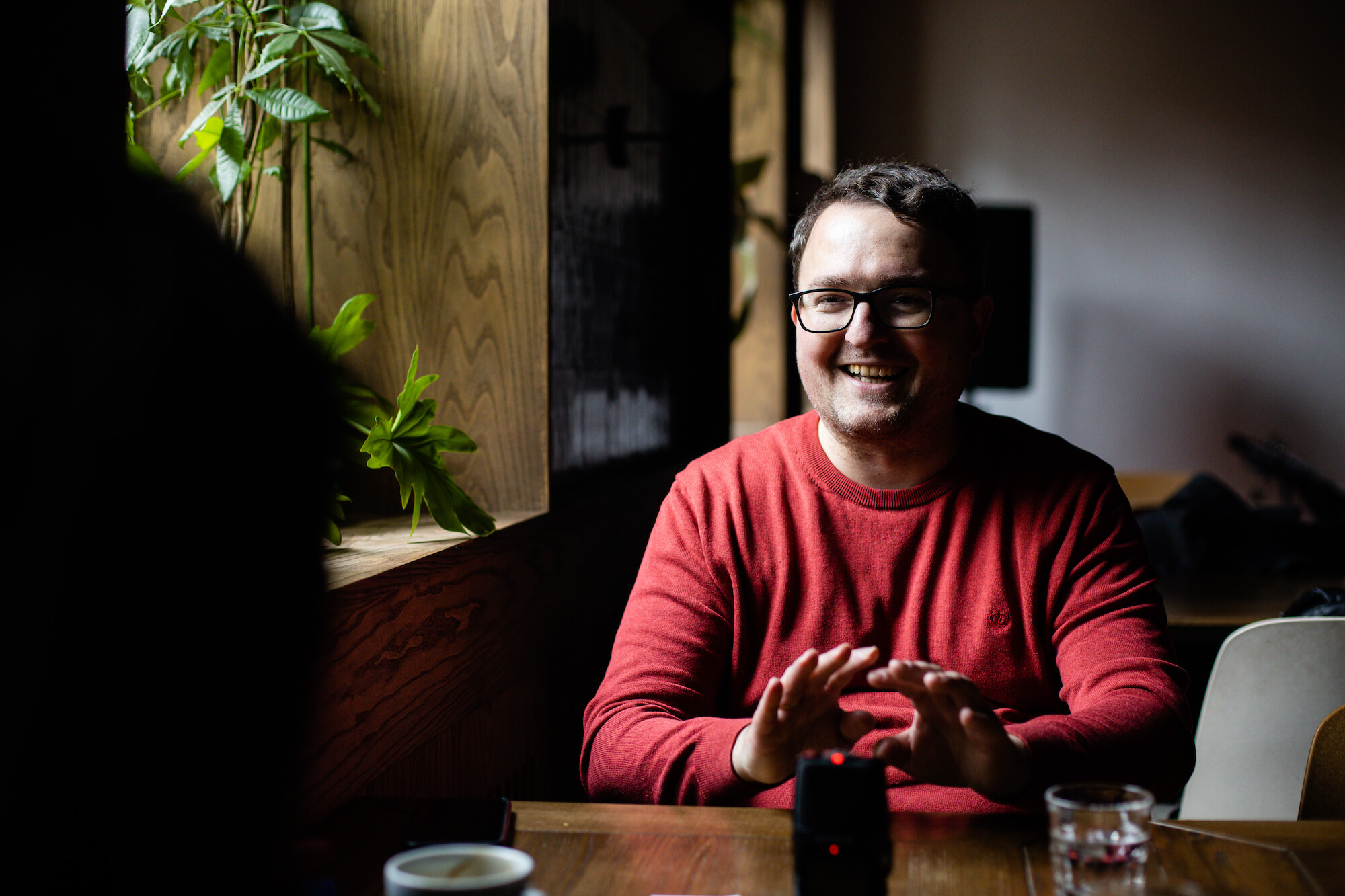
You’ve mentioned your mentors. When we speak of highly skilled international lawyers today, it might not be obvious how they emerged, considering our Soviet heritage. After all, the USSR was not a state governed by the rule of law, and Ukraine’s international presence during that time was far from normal or proper. But young lawyers of the new generation have had accomplished mentors guiding them. How did this happen?
International law, as we know it today, was shaped by Western civilization. That’s why I believe that, even during the Soviet era, international lawyers were essentially “Westerners.” They studied what was termed “bourgeois law” or “the law of bourgeois states.” They engaged with the free world and could observe, interact, and exchange ideas beyond the Iron Curtain.
They knew how things worked in the West. So, when Ukraine gained independence, these lawyers were ready to operate within the framework of “bourgeois” international law.
What does Ukrainian international law look like today?
I think we’re proactive and efficient.
Does the world see us that way too?
They do. And often, they don’t quite understand how we manage to do what we do—bringing innovative approaches and cases to the International Court of Justice, making strides toward establishing a special tribunal in The Hague… All of this has happened so fast, even though we have fewer people and sometimes less robust legal frameworks. We succeed because we’re faster and more proactive.
Our passion for the work drives us. No one approaches it in a purely formal or bureaucratic way. This isn’t some machine where you can just clock in for a shift and leave when it’s over. We’re constantly engaged. Personally, I never work a standard 9-to-5 schedule like many government lawyers in other capital cities. My work hours are different, but again, for me, this is more than just a job.
Has the world always seen us this way? Or they’ve never really looked at us before?
The way we’ve responded to Russian aggression has clearly changed how we are perceived in certain communities and circles. It’s become apparent that the field of international law in Ukraine is becoming younger—more vibrant and dynamic.
So, being a 37-year-old ambassador with incredibly important tasks is something completely normal? In some fields, this could still be considered a “child’s” age.
My colleagues once sent me a German article about our work, and it referred to me as the “young lawyer Korynevych.” It’s true—in Germany and many other countries, professionals under 40 are still seen as quite young.
Our entire field of international law in Ukraine is similarly young, but we’re efficient and proactive. I strongly believe we need to preserve this passion because law isn’t like working on a factory line. You can’t just go through the motions.
Did you ever face ageism as a young lawyer? How did you handle it?
I’ve never really encountered ageism. Maybe once or twice, I heard a comment along those lines, but those were exceptions.
I generally internalize many things and take things close to my heart. Maybe it’s not the best approach, but I can’t help it—I’m always personally invested in what I do. I just can’t distance myself from things and walk on by.
Let’s talk about the punishment for Russian war crimes. What’s it like to be a lawyer in a world where the law seems powerless, especially as we witness Russia’s gross violations of human rights every day and can’t use legal tools to help it?
Ever since my university days, thanks to Mykola Hnatovskyi, I’ve been passionate about international humanitarian law and international criminal law—the very fields that have become central to our work today.
In 2014, when the temporary occupation of Crimea and Donbas began, I realized that I needed to get involved, to make my contribution. I’m not a soldier, but as an international lawyer, I knew I could be of use. If I can’t help the state in this situation, then what’s the point of all my years of studying, reading, writing, thinking, and talking with people?
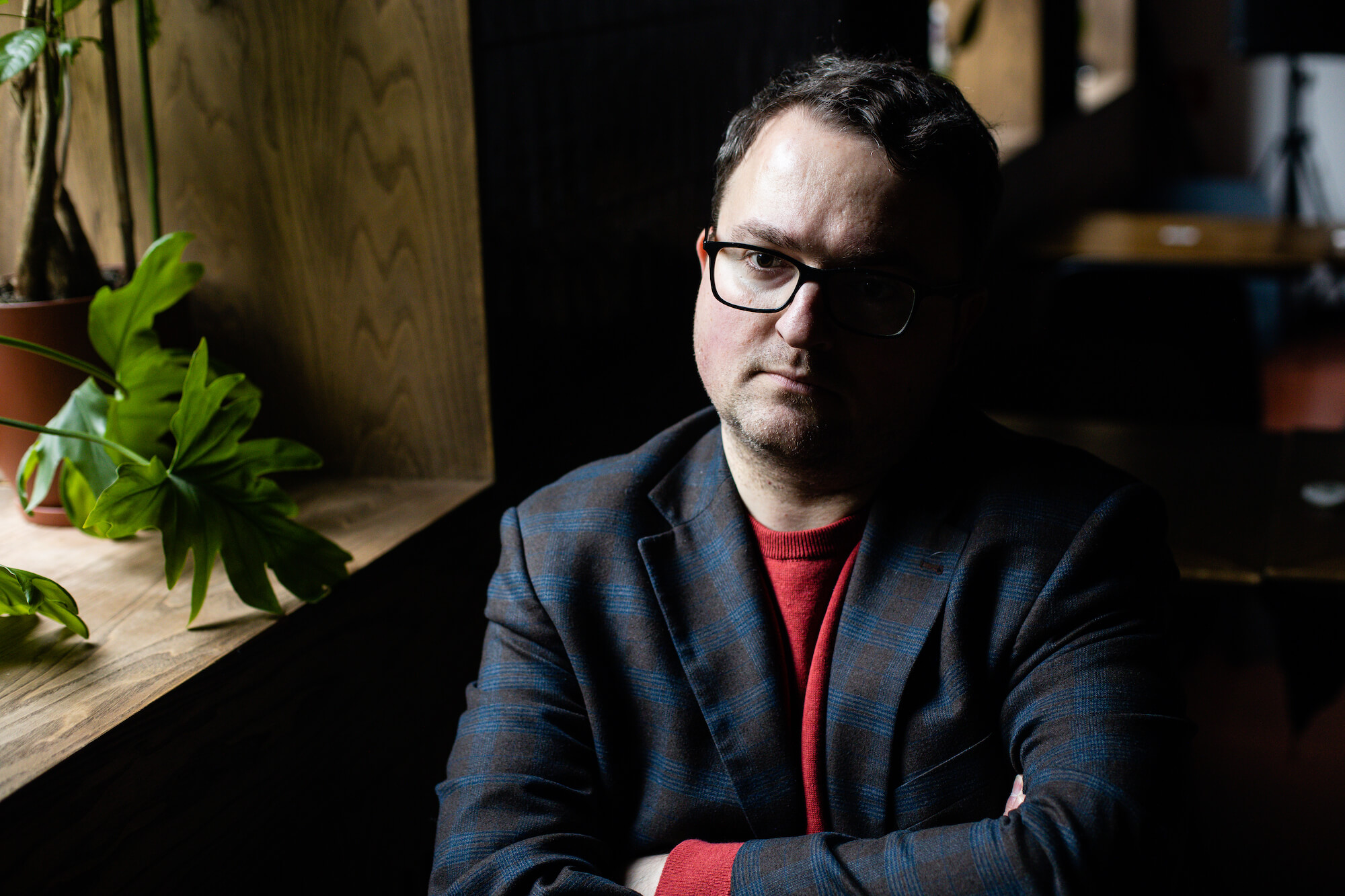
Sometimes, I hear people say, “Nothing will come of this.” Yes, it’s a very difficult task, but we have to do everything we can. In particular, we have to compile as thorough a dossier as possible—a complete portfolio of Russian war crimes.
Compiling this dossier is essential to implement any scenario in which war criminals are punished—whether it’s through an indictment, an arrest warrant, Ukrainian proceedings in absentia, or even Ukrainian conviction in absentia.
Why is this so important?
Look, you and I can both loudly declare, “Putin is a war criminal” or “Prigozhin is a war criminal.” But that would just be our opinion as two private people, two citizens of Ukraine.
For this opinion to turn into actual punishment for war criminals—we need a court ruling. Ideally, a ruling of an international court. And that can’t happen without thorough preparatory work.
a ruling of an international court. And that can’t happen without thorough preparatory work.
Ukraine is losing its best people because of this war. The world would never understand us if we didn’t do everything in our power to bring these war criminals to justice.
So, what is Ukraine as a state doing to achieve this? There’s a clear task: put Russian war criminals behind bars. How can this be done?
Just as we are fighting on the battlefield, we are also fighting in the judicial field. This work has two main tracks: bringing Russia as a state to justice and individual criminal liability of specific individuals.
Okay, let’s look at each of the tracks in turn. So, Russia attacked Ukraine. How can an entire country be held accountable? After all, you can’t put it in jail…
Since 2014, Ukraine has filed lawsuits against Russia in all international courts and institutions: the International Court of Justice, the European Court of Human Rights, the International Tribunal for the Law of the Sea, and others. Wherever we could file lawsuits, we did.
This is necessary for international judicial institutions to establish that Russia is guilty because it has violated international law. This is a traditional practice: International judicial institutions exist precisely to resolve disputes between states and to establish whether international law has been violated.
In which courts have we seen progress in holding Russia accountable as a state?
I’ll focus on the International Court of Justice, where we have two ongoing cases. We refer to one of them as the “big case,” which involves the Convention on the Elimination of All Forms of Racial Discrimination and the Convention for the Suppression of the Financing of Terrorism.
What are these lawsuits specifically about?
In that case, where we appeal to the Convention on the Elimination of All Forms of Racial Discrimination, we’re addressing the situation in Crimea, particularly the violations of the rights of Crimean Tatars and ethnic Ukrainians. These violations relate to language, education, and culture. As for the Convention for the Suppression of the Financing of Terrorism, this part of the case focuses primarily on the situation in Donbas.
In this “big case,” Ukraine has already won the jurisdictional phase. The International Court of Justice ruled that it has the authority to hear the case on its merits. While this isn’t the final victory, it’s a significant step forward.
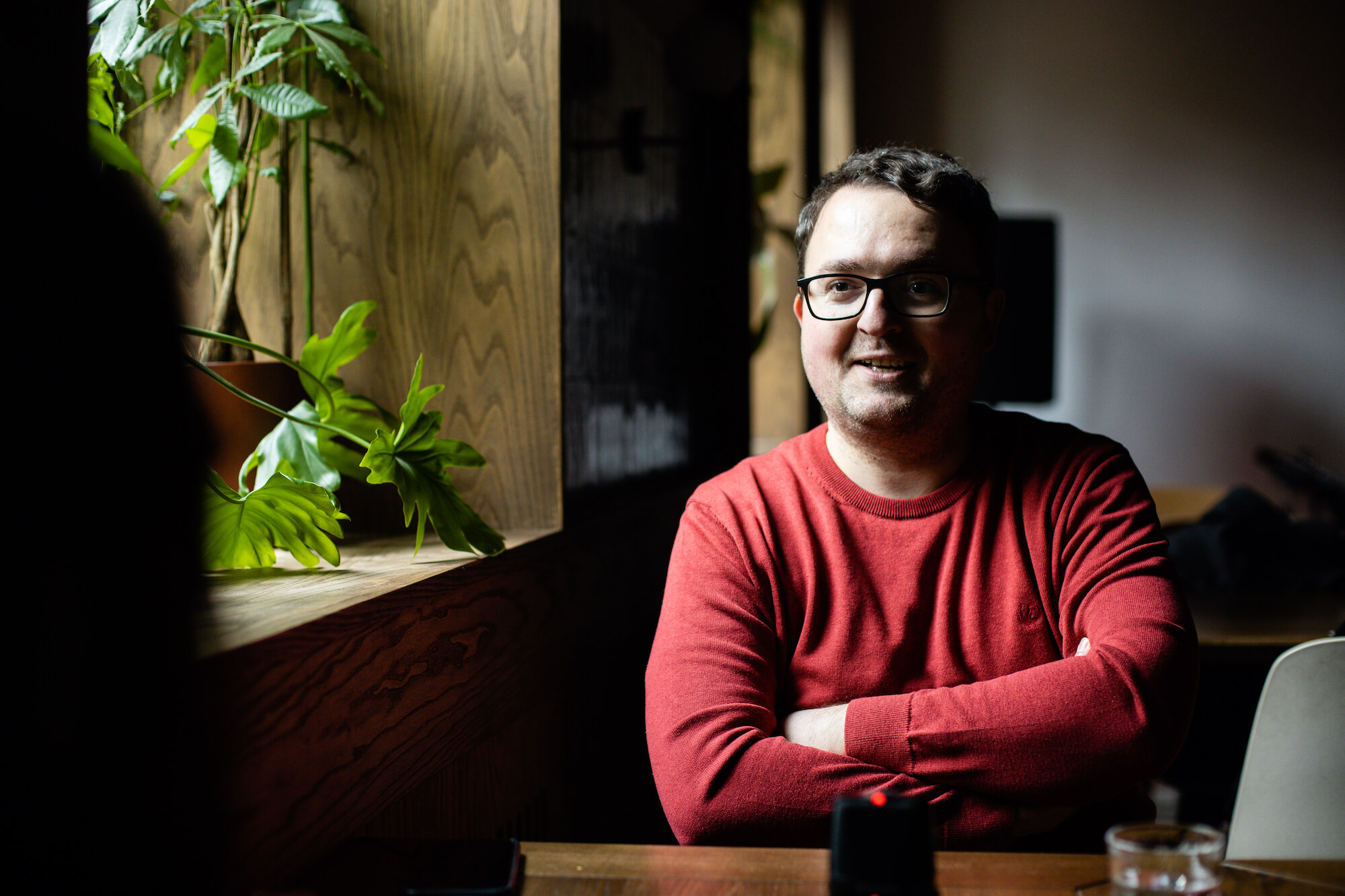
The second case at the International Court of Justice is against Russia for its baseless accusations of genocide against Ukraine. We’ve been working on this case since February 26, 2024, when the then Minister of Foreign Affairs Dmytro Kuleba stressed that we must use every tool of international law available to help our soldiers.
In this case, we already have an order on interim measures from March 16, 2022, which demands that Russia withdraw all its troops from Ukraine and cease all military operations. We’ve received 33 interventions in our favor, along with those from the European Union—an unprecedented number. Intervention, in this context, means that another state has joined the case in support of one of the parties.
Anyone might counter that by saying that this didn’t stop the war. What real impact has this had?
The world looks to courts and their rulings. Yes, Russia has not yet complied with the order of the International Court of Justice, but this ruling is cited by all our international partners because it clearly states that the war must stop. This is no longer just Ukraine’s position as the victim state; it’s the official stance of the International Court of Justice, with 13 out of 15 judges voting in favor of this decision.
Once Russia is found guilty as a state, what happens next? What will it be required to do?
What we need is a formal declaration that Russia has violated international law and is guilty.
I’m certain that a decision from an international court will carry immense weight. Once we have that, we can begin discussing reparations—compensation for the damage caused.
I can’t share all the details of our strategy, but we are working to ensure that the ruling is as favorable to us as possible.
Let’s move on to the second track: the punishment of individuals for war crimes. What could happen to Putin as a war criminal?
We cannot try Putin in Ukrainian national courts due to the established principle of personal immunities in international law. The “trio” (as it’s known in international law)—the head of state, the head of government, and the foreign minister—have immunity from the criminal jurisdiction of other states. This means Putin has immunity from prosecution in Ukraine and any other national courts.
We can, however, seek to convict him through the existing International Criminal Court, which has already issued an arrest warrant for Putin regarding the deportation of children. But proving his guilt for broader war crimes and crimes against humanity may be more challenging. We would need to establish a clear causal link between specific atrocities—like the war crimes in Bucha—and direct orders from the Kremlin. This will require a lot of effort and time, but it has to be done.
While we fully support the ICC’s efforts, we recognize that to convict Russia’s top officials—not just Putin, but likely 10-20 others as well—we need a new legal mechanism, one capable of trying them for the crime of aggression, specifically for starting and waging this war.
As reasonable people, we understand that the primary crime committed by Putin and his top officials is the crime of aggression—they personally started this war.
War crimes are derivative, carried out by other Russians on the ground. The crime of aggression, however, is much easier to prove than war crimes or crimes against humanity, especially in our case, where the UN General Assembly has already recognized this aggression in its resolutions.
There’s another advantage to this track. When a Russian soldier kills a Ukrainian soldier on the battlefield, it’s not technically a war crime because both are combatants in that context—it’s considered the conduct of hostilities. So, if we want to hold the Kremlin accountable for each of our fallen soldiers, we must prove the crime of aggression.
If we seek justice not only for the deaths and torture of civilians and prisoners but also for the killing of our military heroes and heroines, we must prove the crime of aggression.
Will Putin be tried by this special tribunal in The Hague?
We want this very much.
Let me clarify what we mean by a “special tribunal in The Hague.”
First of all, The Hague is the global hub for international justice. Nearly all international judicial bodies are based there, so we’re not trying to reinvent the wheel or simply aiming to “go to The Hague.” There will need to be an actual institution—a court—with prosecutors, judges, and staff working within a physical building.
Will it follow the same logic as the Nuremberg Tribunal, with a single trial from beginning to end?
Yes, it should be an ad hoc tribunal with a temporary mandate. We’re not trying to create a permanent, universal structure and will complete our work once the trial is over, much like the tribunals for Tokyo, Yugoslavia, and Rwanda.
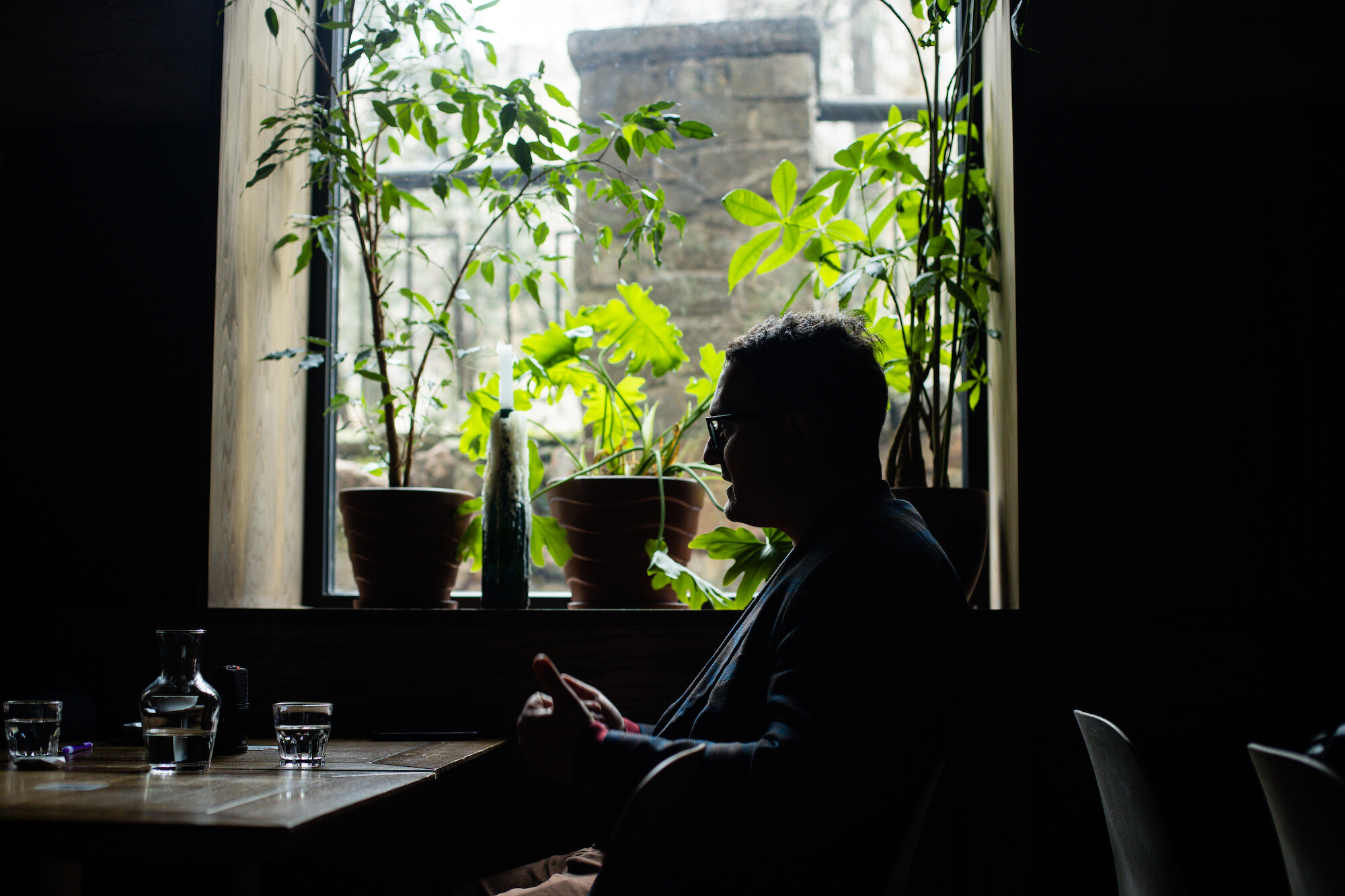
In Nuremberg, the United States, the United Kingdom, France, and the Soviet Union worked together as the victorious side. Who will take part in this tribunal?
Our tribunal will be different. It will have jurisdiction over only one crime: aggression. Since the International Criminal Court already covers war crimes, crimes against humanity, and genocide, there’s no need to duplicate those efforts.
Who exactly will work in this tribunal?
The details of that aren’t something we can discuss just yet. We’ll address those specifics when we’re closer to establishing the tribunal. The court’s charter will outline who can serve as prosecutors and judges. Of course, we have drafts and a vision in mind, but this still needs approval from our international partners.
Will this court try Putin and a few others?
Our colleague, Philippe Sands, who has been a great help to us, estimates that around two dozen individuals could be tried. I agree with that assessment.
Why?
Because this is a special kind of crime—the so-called “leadership crime.” Only those individuals who, by virtue of their role or function, have the authority to order the initiation and conduct of an aggressive war can be held accountable. But, ultimately, the tribunal will decide on these matters.
Will this tribunal judge the Russian leadership as a whole, or are we talking about individual cases for each person?
We are talking about individual criminal responsibility. Each case will be handled on a person-by-person basis.
Are cases in absentia possible?
This is something that still needs clarification and discussion with our international partners. As you may know from Dmytro Kuleba’s comments, Ukraine has formed a coalition of thirty-three states, which is currently deliberating on legal issues, including the possibility of holding trials in absentia.
What is your personal opinion?
Most international criminal tribunals do not conduct trials in absentia—this is the norm. The only exception so far is the Special Tribunal for Lebanon. However, there’s nothing stopping us from including the possibility of trials in absentia for the new tribunal. This would require a consensus decision.
However, even the issuance of an arrest warrant by the special tribunal for the Russian top leadership will hold significant weight—and this does not require the accused to be physically present.
Now, let’s talk about the individual responsibility of each Russian soldier for war crimes.
We will convict all of them. When we discuss the special tribunal in The Hague for convicting the Russian leadership, it doesn’t mean we intend to focus only on them and ignore the other war criminals. We remember them, and there are already judicial institutions in place to deal with them.
Which ones?
The national courts of Ukraine and other countries which have opened criminal proceedings. Many European countries have joined this effort, including a joint investigation team that consists of Ukraine and six other countries—Lithuania, Latvia, Estonia, Poland, Romania, and Slovakia. This team also includes the Office of the Prosecutor of the International Criminal Court and Eurojust.
In many cases, national courts can conduct trials in absentia. Ukrainian courts, in particular, are already operating in this manner.
In addition to national courts, war criminals can also be held accountable through decisions by the International Criminal Court, which I expect will focus on the highest-ranking Russian military officials.
So far, around 90,000 war crimes have been documented [this interview was recorded in April 2023]. But the war isn’t over yet. We have not yet liberated Mariupol, Melitopol, or Berdiansk, and we haven’t seen Crimea, Donetsk, or Luhansk since 2014. One can only imagine the atrocities the Russians have committed and are still committing in the temporarily occupied territories. These, along with future cases, should be handled by national judicial systems.
Is our national judicial system coping?
I believe our system is doing its best under the circumstances, and we’re receiving a great deal of support from our international partners. But it’s a massive workload, indeed.
When the first verdict was handed down against a Russian soldier, there were concerns that the case wasn’t handled thoroughly enough and that the convict might have a chance of being acquitted in later stages, including at the European Court of Human Rights. What’s your assessment? I’m not asking specifically about this case but about the chances of other Russian military officers avoiding responsibility.
I believe my colleagues in the courts and the prosecutor’s office are well aware of the importance of handling these cases with the utmost care.
War crimes, crimes against humanity, and genocide are the gravest offenses known to humanity. That’s why we need to ensure that every case, whether it’s against a hypothetical tank crewman Ivanov or any other, is solidly built and meticulously conducted at every stage, leaving no room for errors that could be exploited later.
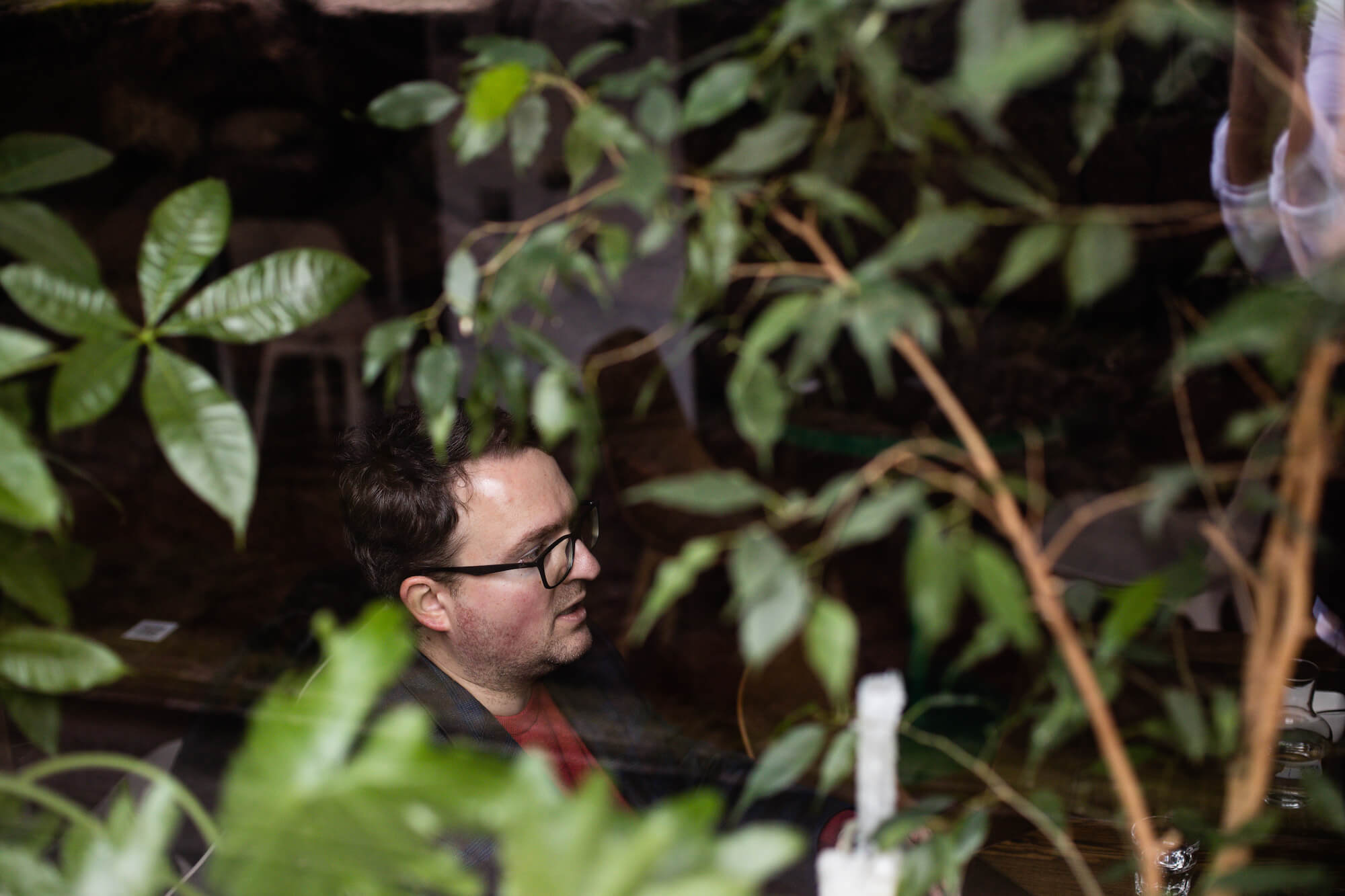
How long can this process of restoring justice take?
It takes time. But as the English saying goes, “The wheels of justice grind slowly, but grind exceedingly fine.” International justice, in particular, is often a slow process. However, national proceedings can also be delayed—just look at the Maidan cases.
But there are issues with those cases. People still feel that the evil hasn’t been punished.
Exactly, and that’s why I bring them up. There are delays even in national justice. We can’t promise that everything will happen quickly.
Ukrainian lawyers need to make every effort to accelerate these processes—that’s our responsibility, whether in the special tribunal or national courts. Our initiative and perseverance should set an example for our colleagues from other countries.
International justice is the path to punishing this evil.
In the tradition of ancient Greek tragedy, catharsis must come at the end. When will you know, in your heart, that the process is complete, that your catharsis has truly arrived?
I’m not a judge or a prosecutor, so for me, the key will be seeing that a special tribunal is established and that the wheels of justice are turning.
The international community is paying close attention to this situation, and we can’t just let it fester. This isn’t something we can be skeptical about or brush aside. If we stop now, the very principle prohibiting the use of force and threats will just die. It’ll simply be reduced to a line in a textbook or a subject of a school report.
So, for me, the moment I’ll know we’ve turned a corner is when I stand in The Hague and touch the wall of the building where this special tribunal is housed. When I see people at work—judges, prosecutors—beginning real trials to punish all those criminals.
That doesn’t mean we’ll all pack up then and head off for a vacation in the Seychelles—though, to be fair, I haven’t had a proper vacation since 2019. No, we’ll keep on working, and we’ll do everything possible to make it count.
Translation — Hanna Leliv
§§§
[The translation of this publication was compiled with the support of the European Union and the International Renaissance Foundation within the framework “European Renaissance of Ukraine” project. Its content is the exclusive responsibility of the authors and does not necessarily reflect the views of the European Union and the International Renaissance Foundation]
